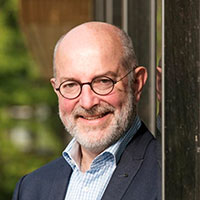
Vaccine Voices
Trust in science and in public health measures—particularly immunisation—is essential to ensuring timely protection for people, no matter where they live. Challenges ahead, such as an ageing population, antimicrobial resistance (AMR), the impacts of climate change, shifting geopolitical dynamics, and persistent vaccine hesitancy, can be tackled effectively if we act decisively to strengthen healthcare systems, enhance prevention with appropriate and sustainable budget, invest in the health workforce, and foster public confidence in evidence-based solutions. In this rapidly changing environment, science provides us with the tools not only to respond to emerging threats but also to build a healthier, more resilient Europe for generations to come.
Our #VaccineVoices series brings together trusted experts who share their thoughts about current health challenges and how immunisation can help address them.
The role of vaccination in tackling antimicrobial resistance

Charlie Weller from Wellcome explains how immunisation can help address antimicrobial resistance in this four-part interview.
#1: What makes antimicrobial resistance such a significant public health threat?
#2: Why is vaccination an important tool for tackling antimicrobial resistance?
#3: What evidence is there that vaccination helps curb the spread of AMR?
#4: How can we ensure vaccination can be used to its full potential against AMR?
Vaccine-preventable cancers: from recommendation to action

Professor Pierre Van Damme from the University of Antwerp explores what actions are needed to tackle vaccine-preventable cancers in Europe in this six-part interview.
#1: What actions are needed to increase vaccination coverage rates for HPV and HBV?
#2: Connecting electronic vaccination registries with cancer registries.
#3: Can Belgium be a frontrunner in HBV and HPV prevention and elimination?
#4: How can healthcare providers support vaccine
confidence?
#5: Why expanding vaccination access points is key to improving uptake
#6: Future advancements in Europe related to vaccine preventable cancers
